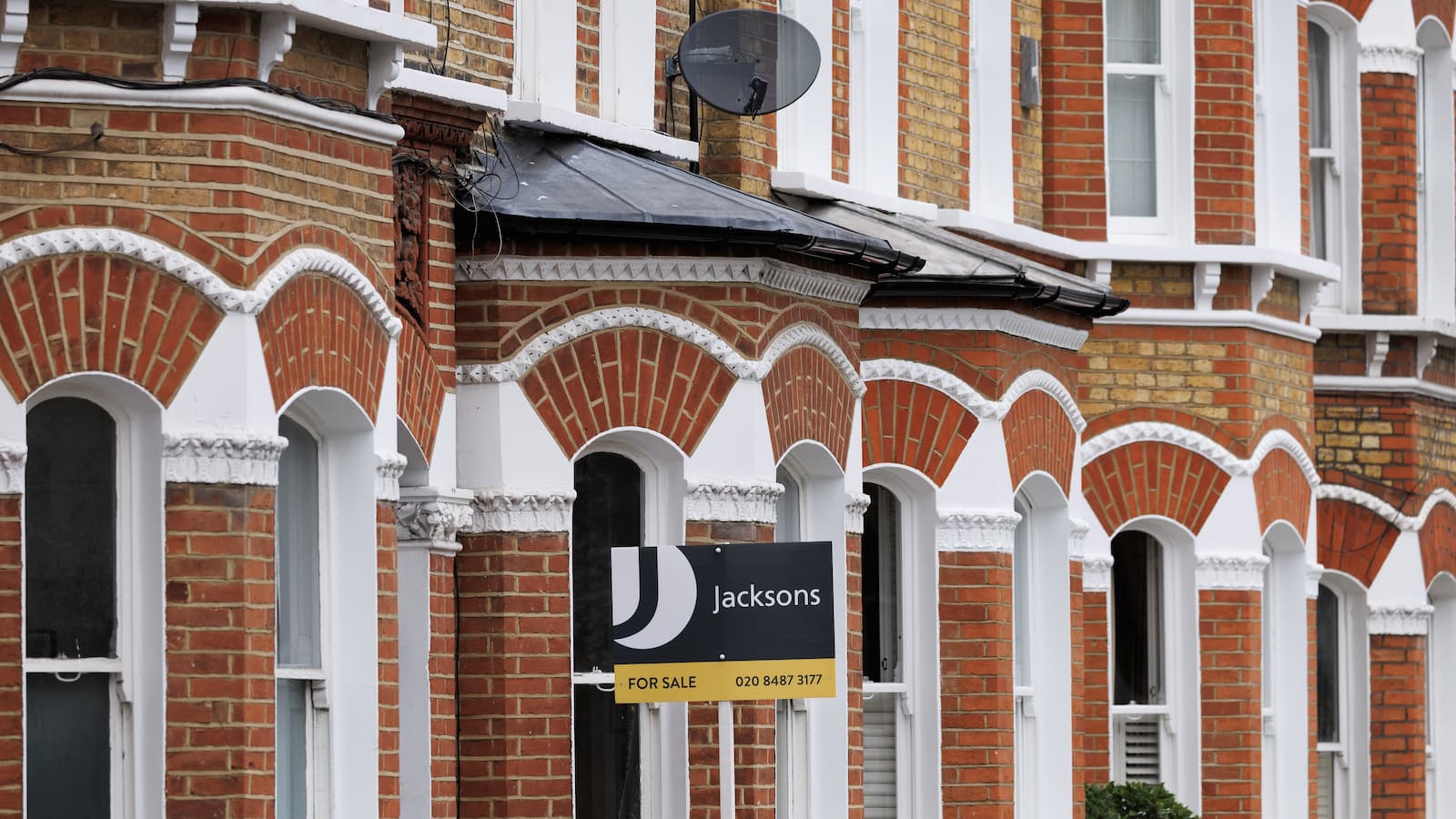House prices are rising – but could inflation stop the momentum?
House prices rise toward the end of 2025, but cost pressures from inflation add a new challenge for the market

Bring your dream home to life with expert advice, how to guides and design inspiration. Sign up for our newsletter and get two free tickets to a Homebuilding & Renovating Show near you.
You are now subscribed
Your newsletter sign-up was successful
House prices have returned to modest growth after a challenging 2025, with the average property now valued around £271,000, according to Office for National Statistics (ONS) figures.
The 2.5% annual rise in November marks the first sustained uptick in price inflation in several months, led by gains outside London. Yet economists warn that the recent return of inflation - rising to 3.4% in December - could put fresh pressure on buyers if living costs continue to climb.
While the market is showing signs of recovery, potential buyers may still need to navigate regional differences in price growth, higher borrowing costs in some areas, and ongoing economic uncertainty - all factors that could influence timing and decisions when buying a house.
House prices rise after late‑2025 slump
ONS data shows the North East continues to lead the country in annual house price growth, while London remains the only region where prices have shrunk over the year.
In England, average house prices reached £293,000 (up 2.2%), Scotland saw a 4.5% rise to £193,000, and Wales moved up 0.7% to £209,000. Analysts say that London’s weaker performance reflects both policy uncertainty and the city’s higher proportion of luxury homes.
Jonathan Hopper, CEO of Garrington Property Finders, described recent figures as a market “settling down rather than surging,” noting that greater stock levels may keep price rises modest as transactions begin to flow again.
“With many mortgage lenders trimming their interest rates in recent weeks and prices in southeast England and London more affordable than they have been for some time, the shackles are coming off demand,” Hopper said, but added that abundant choice among buyers could mean growth remains measured.
Bring your dream home to life with expert advice, how to guides and design inspiration. Sign up for our newsletter and get two free tickets to a Homebuilding & Renovating Show near you.

Jonathan Hopper has over 25 years’ experience in property and relocation. He has led high-value transactions, developed market-leading brands, and built a strong reputation serving both private and corporate clients.
How will rising inflation impact house prices?
UK inflation unexpectedly edged up in December to 3.4% - the first rise in five months - propelled in part by price jumps in specific sectors.
ONS chief economist Grant Fitzner said inflation “ticked up a little,” although most economists view this inflation rise as temporary - with some forecasting inflation will continue downward toward the Bank of England’s 2% target later in 2026 - the short‑term increase complicates the cost‑of‑living picture.
Persistently higher prices for essentials and travel can squeeze household budgets and influence borrowing decisions, especially for those considering property purchases.
Will house prices fall in 2026?

Housing market specialists remain cautiously optimistic but stress that inflation and economic uncertainty could limit faster price growth.
Jonathan Hopper noted: “With many mortgage lenders trimming their interest rates in recent weeks and prices in southeast England and London more affordable than they have been for some time, the shackles are coming off demand. That said, the abundance of stock on the market means would-be buyers are spoilt for choice and price rises should stay modest.”
Hopper added that while early 2026 has seen increased activity compared with the tail end of 2025, rising costs for essentials such as travel and consumer goods could make buyers more cautious in their decisions.
Verona Frankish, CEO of Yopa, offered a complementary perspective: “November’s figures reflect the market just prior to the Autumn Budget, but with uncertainty lifted, we’ve seen meaningful progress in the few short months since - suggesting stronger house price performance is on the cards in 2026.”
For even more advice, information and inspiration delivered straight to your door, subscribe to Homebuilding & Renovating magazine.
The answer right now is that house prices are softening rather than falling sharply. Nationwide’s data shows resilience across the market, but affordability pressures remain high, with mortgage payments consuming more than a third of take-home pay for many buyers.
Looking ahead, the housing market could hinge on two key factors: mortgage rates and stamp duty. If borrowing costs continue to ease as expected, buyer confidence is likely to improve, potentially supporting a gentle market recovery.
For those planning to buy, make sure you’re prepared by checking our house viewing checklist and reading our guide on building surveys and mortgage rate rises. Sellers can also stay informed with our 'How much is my house worth?', ensuring you achieve a fair price in the current market.

News Editor Joseph has previously written for Today’s Media and Chambers & Partners, focusing on news for conveyancers and industry professionals. Joseph has just started his own self build project, building his own home on his family’s farm with planning permission for a timber frame, three-bedroom house in a one-acre field. The foundation work has already begun and he hopes to have the home built in the next year. Prior to this he renovated his family's home as well as doing several DIY projects, including installing a shower, building sheds, and livestock fences and shelters for the farm’s animals. Outside of homebuilding, Joseph loves rugby and has written for Rugby World, the world’s largest rugby magazine.
